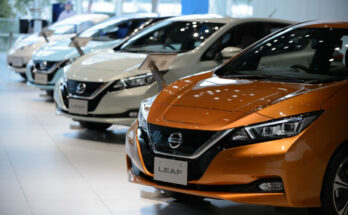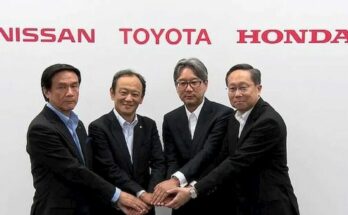A controversy is raging in Japan over the head of Toyota Motor’s insistence that hybrid vehicles be put on an equal footing with battery-powered electric cars. Japanese officials changed a key policy document that put hybrid vehicles on par with battery-electric cars after Toyota chief Akio Toyoda warned an MP that carmakers could not back a government that rejected hybrid engine technology, like that used in the Prius, according to notes from a ruling party meeting.
The wording changes, which included adding a reference to “so-called electric-powered vehicles”, appear to put fossil-fuel burning hybrids on equal footing with zero-emission battery vehicles, even though environmentalists say there is a vast difference.
Related: Toyota Ranked as World’s Third-Most Obstructive Company Against Climate Policies
Japan‘s auto industry, particularly Toyota, has been under pressure from environmentalists and green investors who say it has been too slow to embrace battery-electric vehicles and lobbied governments to undermine a transition to them. Akira Amari, a former industry minister and a veteran member of the Liberal Democratic Party (LDP), requested the change to the government’s annual economic policy roadmap during a meeting held earlier in June, saying he had spoken with Akio Toyoda a day earlier, according to a review of notes and audio. It is pertinent to mention that Akio Toyoda is both chairman of the Japanese Automobile Manufacturers Association (JAMA) lobby as well as the president of Toyota Motors.
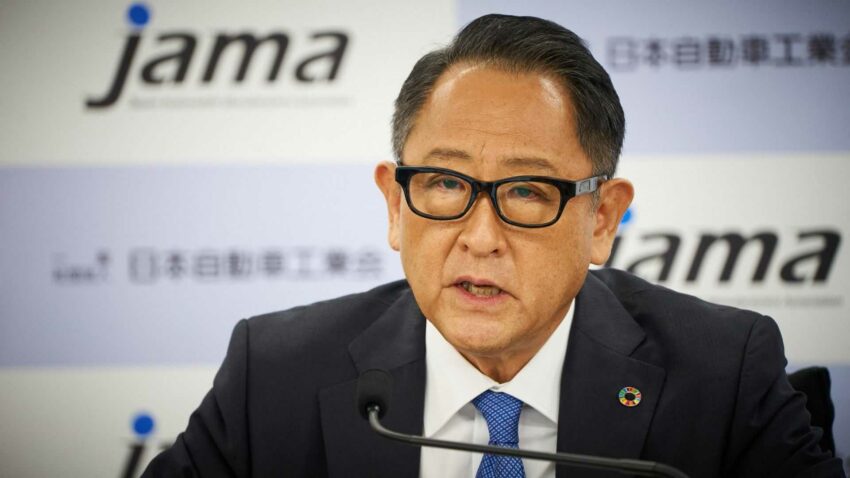
Amari told the policy meeting of LDP lawmakers, according to the notes and audio. He said:
“I spoke with chairman Toyoda and he said that JAMA cannot endorse a government that rejects hybrids. Use of synthetic fuel, such as from hydrogen, would make hybrids “100% clean energy” cars and the policy document should make that explicit. If we don’t make that clear, JAMA will push back with all its might. If we don’t say that hybrids are included in the category of electric vehicles, that won’t look good.”
He went on to mention that Akio pressed that a reference to electric-powered vehicles should be changed to “so-called electric-powered vehicles”. Amari confirmed that he asked for the inclusion of the word “so-called” to make clear that electric vehicles were not limited to battery-electric vehicles and included hybrids. He said he asked for no other changes.
Related: How Toyota Sneakily Spreads Anti-EV Propaganda in Japan
Amari explained, what Mr Toyoda is trying to say is that hybrids running with synthetic fuels are good for the environment because they are extremely fuel efficient. He said he would be extremely unsatisfied if hybrids were rejected. That’s what he told me. He asked if the LDP were rejecting hybrids and I said that we were doing no such thing.
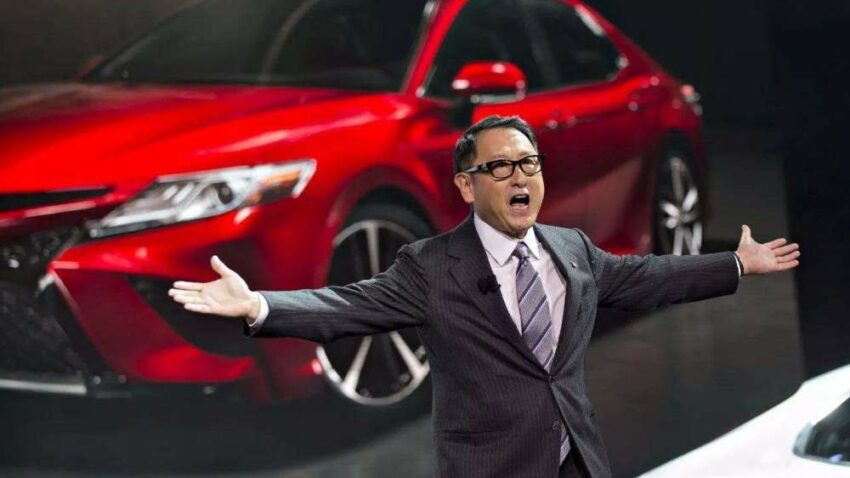
Amari said that by developing synthetic fuels automakers would be able to produce zero-emissions internal combustion engines. Such fuels could also be used in aircraft, which can’t run on battery power, he said.
Related: Toyota Says Consumer Choice Dictates Pace of Electrification
In a statement, JAMA said the auto industry was making every effort toward its goal of becoming carbon neutral by 2050. Since the goal was carbon neutrality, it was important to broaden options and not be limited to specific technologies, it said.
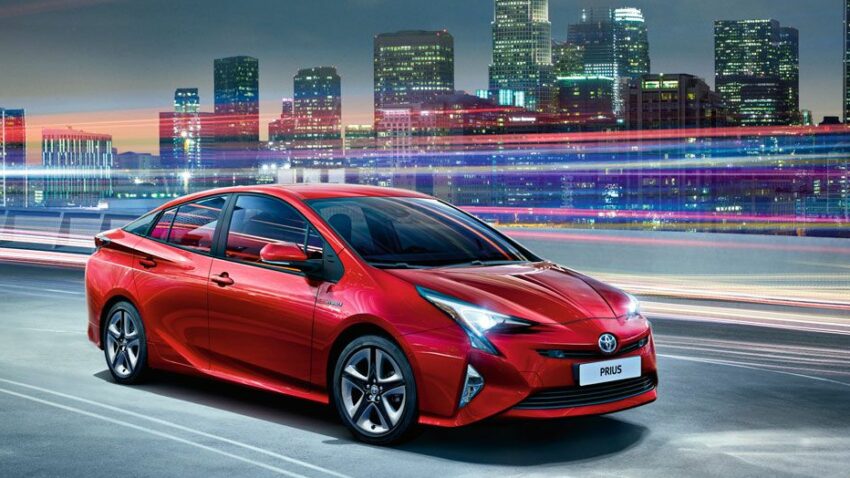
The annual policy document is of major importance for the government and serves as a framework for its future policy. Toyota, the world’s biggest automaker by sales, has said fossil fuels, not internal combustion engines, are the problem. As well as the hybrids it popularized more than two decades ago with the Prius, it also champions hydrogen technology, although that has so far not caught on the way battery-electric cars have.
Related: Japanese Automakers are Least Prepared for Zero-Emissions Shift
Energy and climate think-tank InfluenceMap has rated Toyota the worst among major automakers for its lobbying record on climate policy, which includes public statements and interaction with governments. Toyota has also been criticized by its own investors, including pension funds, over its lobbying. Denmark’s AkademikerPension has already sold down most of its stake in Toyota over the last year.
Source: Asia Financial

A computer animation professional with over 23 years of industry experience having served in leading organizations, TV channels & production facilities in Pakistan. An avid car enthusiast and petrolhead with an affection to deliver quality content to help shape opinions. Formerly written for PakWheels as well as major publications including Dawn. Founder of CarSpiritPK.com

